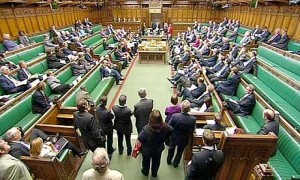The Unite Parliamentary Staff Branch would like to thank the following MPs who talked about the impact IPSA has had on MPs’ staff during the backbench business debate on Thursday 2 December 2010. Special thanks to those who raised the need for IPSA to be more pro-active in consulting with the union branch and other groups representing MPs’ staff.
The Hansard can be viewed here.
Adam Afriyie (Windsor) (Con): The hon. Gentleman is right that there is a fundamental incompatibility between an external body controlling the terms and conditions by which staff are employed and the responsibility for that employment falling with the individual Member.
Liz Kendall (Leicester West) (Lab): Continuous service is one element of the old system that would be of benefit.
Mr Ian Davidson (Glasgow South West) (Lab/Co-op): Does my right hon. Friend agree that one of the IPSA issues that is not transparent is the cost that it places on Members’ staff time? There is no mechanism through which the staff time taken up filling in IPSA forms, dealing with IPSA, phoning IPSA, waiting on the phone for IPSA to answer and waiting for IPSA to ring us back is quantified at all. That is a grossly underestimated cost, which is totally untransparent.
Paul Murphy (Torfaen) (Lab): My final point relates to our staff. Not many Members have mentioned the men and women who work for us, either here in the House of Commons directly or, particularly, in our constituencies. They have been seriously disadvantaged over the past number of months, not least by the dramatic change in the pension position. It is now taken directly out of our allowances and not paid from the Commons itself. There is a very strong case that the trade unions and staff associations that represent the staff of Members of Parliament should be properly recognised and should have proper means of negotiating directly with IPSA to ensure that their conditions of service are not disadvantaged. This would not happen in the private sector or in the public sector outside this place, and it should not happen in the House of Commons.
Hilary Benn (Leeds Central) (Lab): The fourth problem is that the budgets set do not reflect in all cases the commitments that MPs already have, the work loads in their offices or the higher cost of renting offices in some parts of the country, some cities and some towns. One practical and simple step to help MPs would be to allow virement between the staffing, office rent and office costs budgets, because that would allow Members to make that judgment. The overall budget level needs to be looked at, because adding the 10% pension contribution has created a real problem. The argument was, “We have taken some other expenses out,” but I do not know many Members who claim them.
MPs who have been worried that they cannot meet their commitments to staff-the number of hours and so on-have been told that they can approach the contingencies fund. I hope that IPSA will in all cases, therefore, meet those costs out of contingencies, because that problem needs to be addressed.
We heard from my hon. Friend the Member for Leicester West (Liz Kendall) about the difficulties of trying to obtain paternity leave, and I know of problems with maternity leave, too. I echo what my right hon. Friend the Member for Torfaen (Paul Murphy) said about consulting staff and the unions. We should recognise the enormous contribution that our staff make in supporting us and in doing a job on behalf of our constituents.
Clive Efford (Eltham) (Lab): I am a London MP and my staff are all based in my constituency. I have had the same staff since I was first elected. The inflationary increase in the staffing allowance was not a living increase, so if I had followed that, those staff would effectively have taken a real-terms pay cut. Instead, I vired money from my incidental expenses account into my staffing account to pay them a bonus at the end of the year, which meant that they got a decent salary increase. There is no viring any more, no spinal column, no incremental increase, and no recognition of the length of service of our staff. I really hope that IPSA takes that on board and rewards our staff.
Duncan Hames (Chippenham) (Lib Dem): A similar argument applies to arrangements for MPs’ staff. Many are modestly paid, hard-working and share all the job insecurity that we, as elected representatives, have come to accept. The budget for their employment, as was explained earlier, has effectively been cut by 10% since May and unlike other public servants they have no recourse to a professional human resources department and are instead at the mercy of the people management skills of individual legislators. Now that IPSA has deemed it appropriate to set their job descriptions and pay scales, I believe that it should also accept the support responsibilities arising from its emerging de facto relationship as their employer. MPs’ staff deserve to be treated as people and as workers and not reduced to an expense… Basic office accommodation, equipment and HR administration should be provided directly and Members of Parliament should let go and get out of the way.


